profile badges



recent achievements

Rated 25 Games
Rate 25 games you have played.
Rate 25 games you have played.

Supporter
Give 10 hearts (loyalty points) to a single game
Give 10 hearts (loyalty points) to a single game

Advocate
Give 25 hearts (loyalty points) to a single game
Give 25 hearts (loyalty points) to a single game

Rated 10 Games
Rate 10 games you have played.
Rate 10 games you have played.

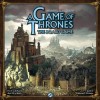
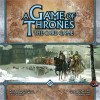














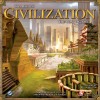







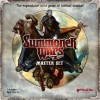















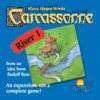











Sator Arepo Tenet Opera Rotas
If anyone remembers a Harry Potter game in which you had to move and rotate the corridors in order to get to your lessons on schedule, this game will give you nostalgic feelings. That’s almost certainly not the case though.
Either way, that description is good for describing what you in this one. Basically, you’re a greedy acolyte in a mystic library who was given the task to get four books to prove you’re awesome. The thing is: you are SLOW. So, why not use your mystic powers in order to bring the books towards you? That’s exactly it
Also, as your speed depends on how many cards you have played, you will certainly be spending some of them just to mess up with your pals. Because you’re better than them anyway!
Speaking of Replay Value, the game is very versatile. Every setup is completely different, but, as part of it depends on the players, I would say that if you keep on going with the same strategy, a little bit of your game will be alike through each time you play it. But just a bit. There’s a lot of variety introduced with the cards you get and the situations you will find yourself in. And, as it is a game that requires some spacial analysis (couldn’t find a better expression for that), there is a development of this ability through rounds, and, at least for me, that’s positive for replay.
The Components are very beautiful, and you feel like playing it when you see the game set up. The only complaint about it would be the lack of a sandglass to limit the time of player turns: it can be complex, there’s almost always a more efficient way to arrange the corridors (especially the L shaped ones), and it can be tempting to just think of all the possibilities. But it is LAME for the other players. So I would say, leave the best opportunities when you have developed a faster thinking.
And with that, the question, is it Easy to Learn? Well, the basic rules and concept are, well, basic. If you’re used to grid movement and action points, it is pretty easy, but if you’re not, you’ll get the hang of it without too much effort. But that’s about the rules themselves. The strategy is a little deeper. As I mentioned, there are times in which all those corridors seem to be just how you need them in order to be perfectly arranged in 3 or 4 actions… But you just can’t seem to find out how exactly. And that may take time to get the hang of.
But it is really worth trying and burning some neurones in the process. And the progress is visible in just a few games.